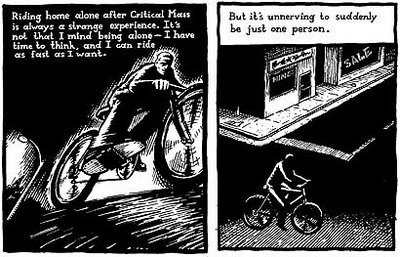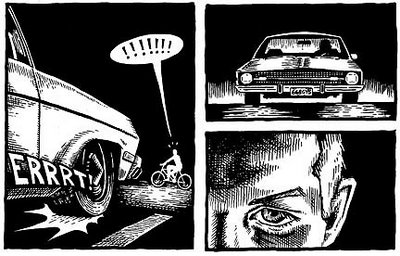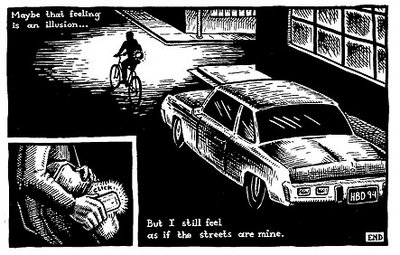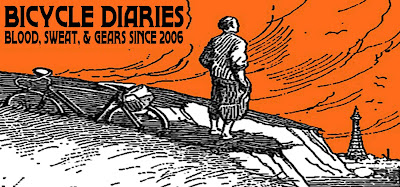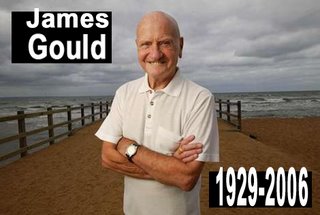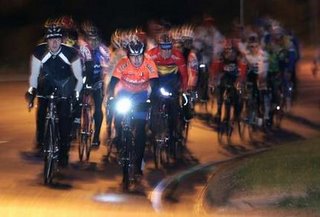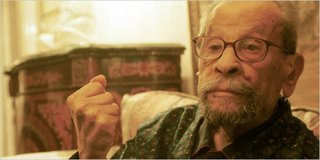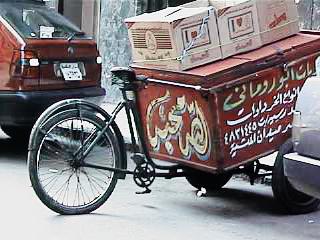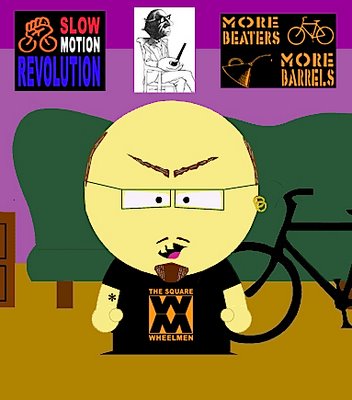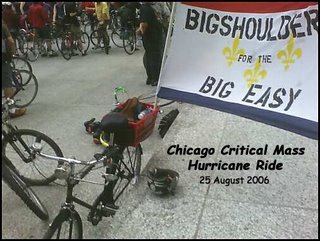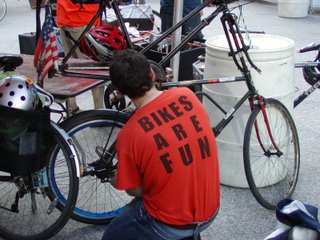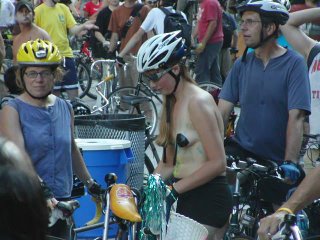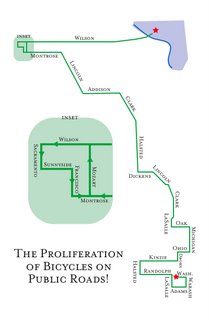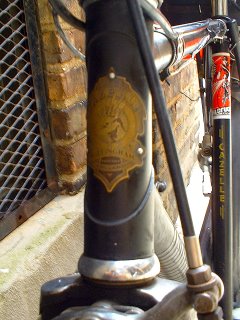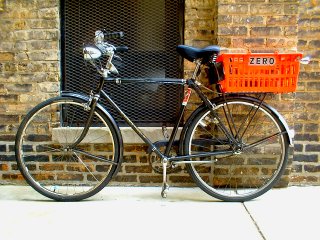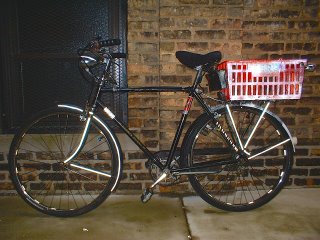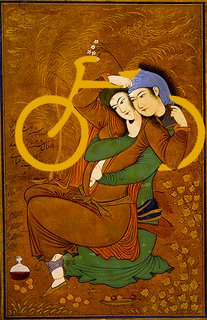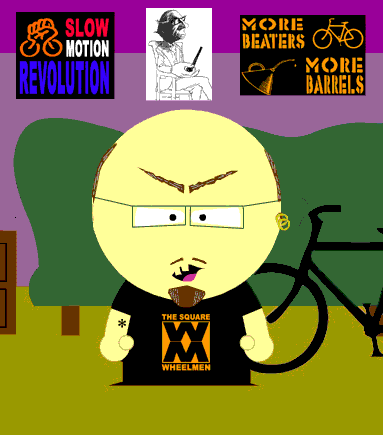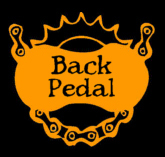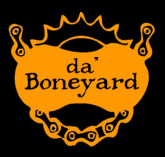
My good buddy,
UffdaDave, has graced us with a post today. He reflects on his adventures in the
Two-wheeled Jihad. Dave's one of my closest and oldest friends. We went to college togther with
Beaterbike Dave. Yeah, I know but having all your good friends named
Dave prevents me from forgetting their names%)
Enjoy...Bicycle Diaries asked me to write a guest blogitorial – that’s my cross between a guest blog entry and the traditional guest editorial submitted to mainstream media publications. He sent me an email invitation send my thoughts and I responded with a lightening quick
yes.
Wow what an honor, I thought, here I am a budding writer and journalist with my own fledgling blog and now I’m being asked to write for someone else. As quickly as the euphoria had set in, so too did the fear of having to produce something that might be interesting to bicyclists reading the blog.
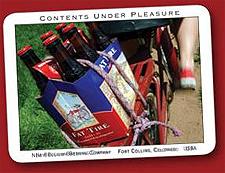
As an avid bicyclist and a self-taught mechanic I thought I would be able to pull plenty of ideas out my brain and create an entry on any given idea. How about the changing of the
flat tire that resulted in a complete brake overall – naw, every bicyclist has had that experience. Maybe the long hot summer ride through the cornfields of Ohio after a job layoff – yeah, like that’s a unique experience. Or an in-depth look at
Rails-to-Trails -
yawn - I love the organization but the thought is making me sleepy.
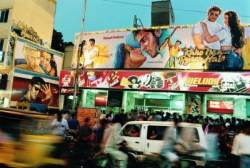
Then anxiety began to take control. Sure, I have fond memories of numerous rides throughout my riding career, but nothing I would identify as interesting to anyone other than myself. Hell, for many years I had the best of bike commuting situations – I rode five miles to my office and the office had a locker room with shower. I biked almost every day from March to November. The facilities were great; the job sucked.
And still no inspiration.
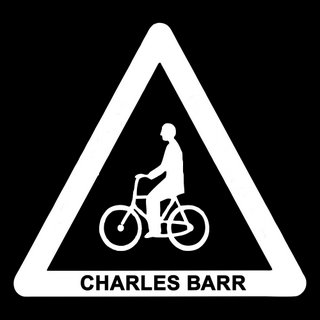
Then I read the August posts of the Bicycle Diaries. If one isn’t too careful, one can become a bit depressed and give up bicycling all together. Too many deaths have occurred as the result of bicycle/car confrontations. Were I live, close to Cleveland, OH,
Charles Barr, a young man in his early thirties and a well-respected bassist with the Cleveland Orchestra, lost his life when he lost control of his bike and swerved into the path of a pickup truck. In this case, Mr. Barr was at fault.
But regardless of the fault, in this country there exist very little safe space between auto and bicycle. On too many occasions when tensions run high between the two it is usually the motorist who is unwilling to share the road and the bicyclist who suffers.
Then I got my inspiration.
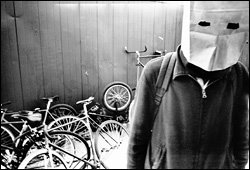
In my younger days I was, what one might call, a bicycle terrorist. I rode the streets and sidewalks like they were paved just for me. I’d weave in and out of traffic, I’d cut off drivers and I’d insult them in a variety of ways. I was hell-on-two wheels and hell-bent on doing things my way despite the consequences.
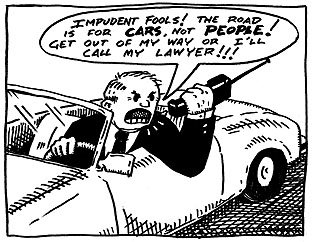
My entry into bicycle terrorism was typical of anyone who eventually winds up in a terrorist organization. As a young man I was a law-abiding citizen; as I grew older I became disillusioned over the inequalities existing between motorist and bicyclist. I turned to the dark side and became a soldier, no a leader, in the jihad against the internal combustion engine.
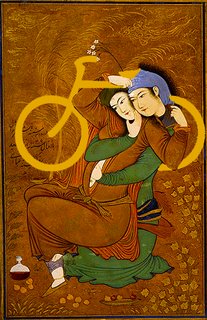
I wonder if 72 virgins would be waiting for me in heaven if I lost my own life while taking the life of an infidel motorist.

Just as a sidebar, I like writing terrorism and jihad into this article. I have this fantasy that it will send Homeland Security and the Bush Administration into a tizzy trying to figure out my hidden message.
Okay, so back to reality. If someone offended me in traffic I hunted them down and left my mark on their car; if there was a hood ornament I took it a as trophy. I was particularly fond of carrying a piece of brick with me, then if a motorist cut me off I’d mark them right there and then on the spot. My own version of brick-a-hick – a game involving throwing a brick at drunken hicks at small town bars. It was developed by a couple of high school students I met during my teaching days.
[Editor's note: the following from Denmark certainly shows that the US is not the only country suffering from rolling terrorists:
 I often hear foreigners saying that Denmark is a quiet country. It's not! It's plagued by gangs of bicycle terrorists. Denmark is a "green" country. That's why so many people are using bicycles as means of transportation. At least that's the official version. The real reason is that new cars are taxed 200%. The bikers are the kings of the road. The highway code does not apply to them, or at least so they think. They bike on pavements, pedestrian crossings, pass red lights, drive opposite the direction in one-way streets, and they don't carry lights when it's dark. Should a police officer dare fining them for such behaviour, they will be seriously offended. When I went to high school in Copenhagen, the teacher came in one morning after having been fined for passing a red light to turn right. He lectured us about how unfair it was. What a way to educate young people! If for some reason they get annoyed with your car driving, they'll politely tell you by bending your antenna or hammering on the roof. Beware that the bicycles enjoy a de facto absolute right of way. If they cause an accident and the car driver is without fault, it's still the car insurance that must pay. This is one of the government's creative ways of punishing car drivers for not riding a bike instead. In communist Denmark, cars are not well seen, because they symbolise the rich. Rich people - or anyone earning an average income or more - are not well seen in Denmark, because they ought to share all their wealth with the poor.]
I often hear foreigners saying that Denmark is a quiet country. It's not! It's plagued by gangs of bicycle terrorists. Denmark is a "green" country. That's why so many people are using bicycles as means of transportation. At least that's the official version. The real reason is that new cars are taxed 200%. The bikers are the kings of the road. The highway code does not apply to them, or at least so they think. They bike on pavements, pedestrian crossings, pass red lights, drive opposite the direction in one-way streets, and they don't carry lights when it's dark. Should a police officer dare fining them for such behaviour, they will be seriously offended. When I went to high school in Copenhagen, the teacher came in one morning after having been fined for passing a red light to turn right. He lectured us about how unfair it was. What a way to educate young people! If for some reason they get annoyed with your car driving, they'll politely tell you by bending your antenna or hammering on the roof. Beware that the bicycles enjoy a de facto absolute right of way. If they cause an accident and the car driver is without fault, it's still the car insurance that must pay. This is one of the government's creative ways of punishing car drivers for not riding a bike instead. In communist Denmark, cars are not well seen, because they symbolise the rich. Rich people - or anyone earning an average income or more - are not well seen in Denmark, because they ought to share all their wealth with the poor.]
However, I bought a motorcycle and then a car and soon I was commuting on a regular basis. In time a family came along that resulted in the addition of a minivan (although I still respect bicyclist and will stop a line of traffic behind me to give the right-of-way to a bicycle). It seemed as if my will to tilt against the cars and trucks in America had been sucked from me.

As I got older (and particularly after I became a father) I grew less reactionary – but no less vocal while riding my bicycle. I had put all my bicycle terrorist activities behind me. Bricks are no longer an accessory on my bike but a decoration around the gardens at my house.

Then I read
Bicycle Diaries’s tragedy posts and the memories of my evildoer ways all came flooding back to me. America was still cold and heartless to bicycle riders. That was when I realized the jihadist still burned bright deep inside me. Who knows what event will transpire and become the catalyst for another bicycle holy war…
Labels: pensées, silly shit, writing
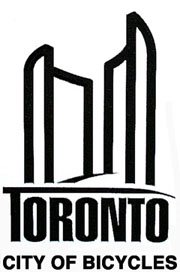 One of the best bike blogs out there is Martino's Bike Lane Diary. He's up north of us in Toronto. Here in Chicago, folks tend to think of our Canadian neighbor as a smaller, cleaner, and ... more polite version of Chicago. I've worked up there a couple of times and can't agree more.
One of the best bike blogs out there is Martino's Bike Lane Diary. He's up north of us in Toronto. Here in Chicago, folks tend to think of our Canadian neighbor as a smaller, cleaner, and ... more polite version of Chicago. I've worked up there a couple of times and can't agree more.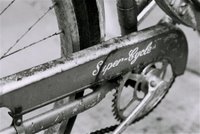 I especially enjoy his photos. Although Martino's posts are less wordy then mine, he really captures the feel of rolling through Toronto. It may be a generational thing. I find that older bikes such as myself rely more on verbal rather than visual expression as do younger bikers.
I especially enjoy his photos. Although Martino's posts are less wordy then mine, he really captures the feel of rolling through Toronto. It may be a generational thing. I find that older bikes such as myself rely more on verbal rather than visual expression as do younger bikers.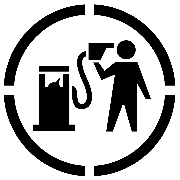 Also, the site's a good way to get an idea of how bike advocacy translates in Canadian. His links are both comprehensive and interesting without being too serious.
Also, the site's a good way to get an idea of how bike advocacy translates in Canadian. His links are both comprehensive and interesting without being too serious. After Toronto's August Critical Mass he posted the following comic from Jim Dyer's Scorcher. I really sums up the feelings I've had each time rolling home from a mass by myself. Enjoy!
After Toronto's August Critical Mass he posted the following comic from Jim Dyer's Scorcher. I really sums up the feelings I've had each time rolling home from a mass by myself. Enjoy!